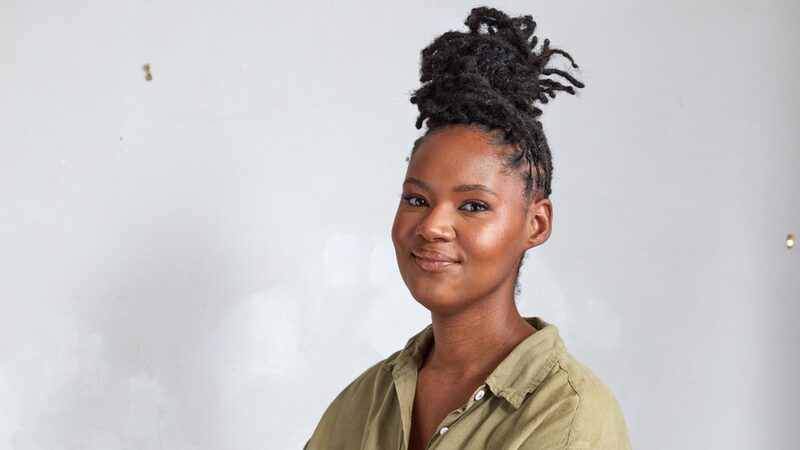You are viewing your 1 free article this month. Login to read more articles.
Walter Scott Prize unveils 2019 longlist
The Walter Scott Prize for Historical Fiction has unveiled its longlist as the chair of the judges warns choosing a shortlist “from these corkers is going to be a tough task”.
Now in its tenth year, 12 books have made the longest to compete for the £25,000 prize. A further list of 20 books recommended by the Prize’s Academy is also unveiled today.
Madame Tussaud-inspired Little by Edward Carey (Gallic Books), Australia-based A Long Way From Home by Peter Carey (Faber) and 1930s-set After The Party by Cressida Connolly (Viking) have made the longlist, alongside Esi Edugyan’s third novel Washington Black (Serpent’s Tail) and mystery The Western Wind by Samantha Harvey (Jonathan Cape).
Elizabeth Lowry’s seafaring Dark Water (riverrun), Andrew Miller’s story of Captain John Lacroix, Now We Shall Be Entirely Free (Sceptre), and Michael Ondaatje’s Warlight (Jonathan Cape), set in the aftermath of the Second World War, have also been recognised.
The second novel in the West Country trilogy, The Wanderers by Tim Pears (Bloomsbury), Robin Robertson’s D-Day veteran epic The Long Take (Picador), Anuradha Roy’s fourth novel All The Lives We Never Lived (Maclehose Press) and the seventh novel in the Shardlake series Tombland by C J Sansom (Mantle) complete the longlist.
The chair of judges, Alistair Moffat, said: “Since its founding in 2009, the Walter Scott Prize has grown in standing and is now a trusted kitemark for the very best historical fiction from the UK and Ireland, as well as a platform from which to introduce exciting voices from the Commonwealth.
“Our tenth longlist features wonderful stories from both the recent and distant past, with diverse settings; from jostling cities and insular villages to vast open spaces and wild oceans. We meet some unforgettable characters - an Australian long-distance rally driver; a diminutive Swiss orphan who becomes Madame Tussaud; a middle-class English housewife caught up in Oswald Mosley’s fascist movement; a young man ‘freed’ from slavery on a journey across the globe. Choosing a shortlist from these corkers is going to be a tough task for the judges.
“We are also delighted to unveil the Academy’s ‘recommended’ list, offering readers a further selection of twenty superb novels from the UK, Africa, Australia and beyond. The Walter Scott Prize Academy, expanded this year to include book bloggers and international book festival directors, is playing an important role in bringing superlative historical fiction from further afield to public attention, as well as recognising home grown talent.”
The Academy Recommends List features Love Is Blind by William Boyd (Viking), The Prince Of Mirrors by Alan Robert Clark (Fairlight Books), The Making Of Martin Sparrow by Peter Cochrane (Viking Australia) and So Much Life Left Over by Louis de Bernieres (Harvill Secker).
All Among The Barley by Melissa Harrison (Bloomsbury), The Hundred Wells Of Salaga by Ayesha Harruna Attah (Cassava Republic), Only Killers And Thieves by Paul Howarth (Pushkin Press) and Mary Ann Sate, Imbecile by Alice Jolly (Unbound) have also been recommended.
Joining the recommended titles are The Black Earth by Philip Kazan (Allison & Busby), The Sealwoman’s Gift by Sally Magnusson (Two Roads), Mad Blood Stirring by Simon Mayo (Doubleday) and As The Women Lay Dreaming by Donald S Murray (Saraband).
Kintu by Jennifer Nansubaga Makumbi (Oneworld), The Angel’s Mark by S J Perry (Corvus), A View Of The Empire At Sunset by Caryl Phillips (Vintage) and Painter To The King by Amy Sackville (Granta) were also recognised alongside A Treachery Of Spies by Manda Scott (Bantam Press), The Tristan Chord by Glenn Skwerer (Unbound), Never Anyone But You by Rupert Thomson (Corsair) and The Madonna Of The Mountains by Elise Valmorbida (Faber)
The judges of the 2019 Prize are Moffat, Elizabeth Buccleuch, Elizabeth Laird, Katharine Grant, James Holloway, James Naughtie and Kirsty Wark. The judges will choose a shortlist in April, and a winner will be announced at the Baillie Gifford Borders Book Festival in Scotland on 15th June. The winner receives £25,000, while each shortlisted author receives £1,000, making the Walter Scott Prize amongst the richest fiction prizes in the UK.
First awarded in 2010, the Walter Scott Prize for Historical Fiction honours the inventor of the historical fiction genre, Sir Walter Scott, and is sponsored by the Duke and Duchess of Buccleuch. Previous winners include Hilary Mantel, Andrea Levy, Sebastian Barry, Tan Twan Eng, Robert Harris, John Spurling, Simon Mawer and Benjamin Myers.
The Prize will announce details of its tenth anniversary celebrations later in the year.


















